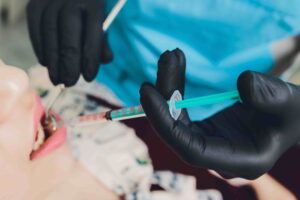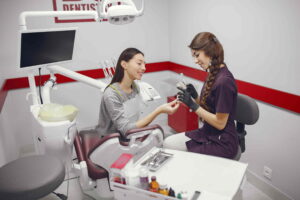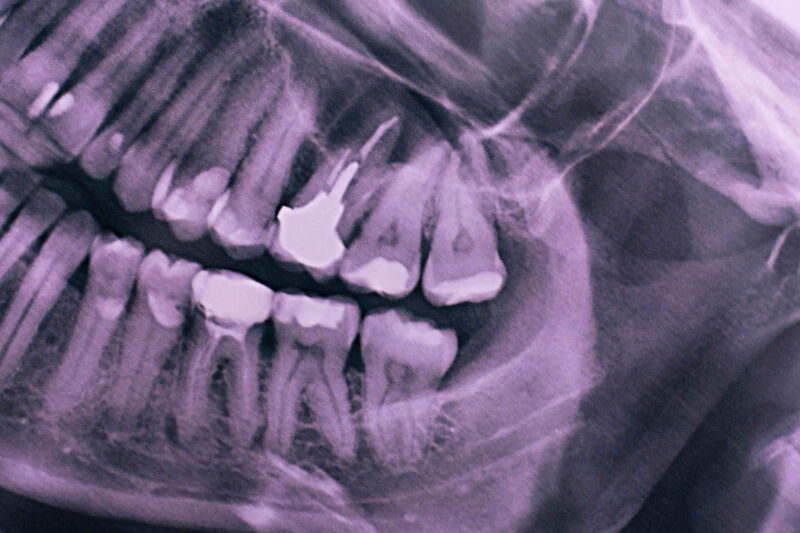Wisdom teeth, also known as third molars, are the final set of teeth to emerge at the back of the mouth. While they can be valuable assets when healthy and properly aligned, they often cause issues when they become impacted or don’t have enough room to grow. In such cases, tooth removal is necessary to prevent dental problems. This comprehensive guide will walk you through what to expect before, during, and after wisdom teeth removal surgery.
Understanding Wisdom Teeth
What are wisdom teeth?
Wisdom teeth usually appear between the ages of 17 and 25. They are the final set of molars to develop in the human mouth, with most individuals having four wisdom teeth—two on the top and two on the bottom. However, not everyone develops wisdom teeth, and some may have fewer or even none at all.
Why do they need to be removed?
Due to their late eruption and limited space in the jaw, wisdom teeth often grow at awkward angles or become impacted, meaning they don’t fully emerge from the gums. Impacted wisdom teeth can lead to various oral health issues, including infection, gum disease, crowding, and damage to neighbouring teeth. Therefore, many dentists recommend removing them before problems arise.

Preparation Before Surgery
The process of removing your wisdom teeth usually begins with a consultation with your dentist. The dentist will conduct a comprehensive dental check-up, including X-rays and a physical examination. This evaluation will help to determine the position of your wisdom teeth and whether or not they need to be removed. If extraction is necessary, the dentist will provide you with detailed information about the procedure and answer any questions or concerns you may have.
Additionally, you will receive pre-surgery instructions, which may include fasting for a certain period before the surgery and avoiding certain medications like blood thinners. You’ll also discuss anaesthesia options, such as local anaesthesia, sedation, or general anaesthesia, to ensure a comfortable and pain-free experience during the procedure.
Wisdom Teeth Removal Options:
Simple Extraction: If your wisdom teeth are fully erupted and easily accessible, a general dentist can often perform a simple extraction.
Surgical Extraction: For impacted or deeply rooted wisdom teeth, an oral surgeon is typically recommended. Oral surgeons specialise in complex procedures and have the necessary training and equipment for safe and efficient wisdom teeth removal.
During the Surgery
The day of your wisdom teeth removal arrives. Here’s a general breakdown of what to expect:
Arrival: You’ll check in at the dental office or surgical centre.
Preparation: Depending on your chosen anaesthesia, you might receive an IV and medication to help you relax.
Anaesthesia administration: Local anaesthesia numbs the area around the wisdom teeth. Sedation dentistry can induce a state of deep relaxation or even temporary sleep. General anaesthesia puts you completely unconscious.
Extraction: The dentist or oral surgeon will carefully expose the wisdom teeth through a small incision in the gum tissue. Depending on their position and angulation, they might need to be sectioned (cut into smaller pieces) for easier removal.
Cleaning and closure: After removing the teeth, the dentist or surgeon will clean the extraction sites, stitch the gums closed, and place gauze over the extraction sites to control bleeding.
The entire procedure typically takes 45-60 minutes, though the exact duration can vary depending on the complexity of the extraction.

After Surgery Care
After wisdom teeth removal, it’s crucial to follow post-surgery instructions provided by your dentist or oral surgeon to ensure proper healing and minimise complications. These instructions may include:
- Taking prescribed pain medication to manage discomfort
- Applying ice packs to reduce swelling
- Eating soft foods and avoiding hot, spicy, or hard foods that could irritate the extraction sites
- Avoiding strenuous activities and smoking, which can impede healing
- Keeping the mouth clean by gently rinsing with saltwater and avoiding vigorous brushing around the extraction sites
Complications and Risks
While wisdom teeth removal is a standard and relatively safe procedure, there are potential complications and risks. These may include:
- Infection at the extraction site
- A dry socket can be excruciatingly painful and can happen when the blood clot at the extraction site is dislodged.
- Nerve damage, leading to numbness or tingling in the lips, tongue, or chin
- Sinus issues if the upper wisdom teeth are close to the sinus cavities
To minimise these risks, it is essential to follow post-surgery instructions carefully and attend follow-up appointments with your dentist or oral surgeon as recommended.

Tips for Faster Recovery
While wisdom teeth removal is a standard procedure, the recovery process can vary from person to person. Here are some tips to help speed up your recovery and ensure a smooth healing process:
Follow post-surgery instructions: Your dentist or oral surgeon will provide specific instructions for post-surgery care, including how to clean the extraction sites, what medications to take, and dietary restrictions. Following these instructions closely is crucial to promote healing and reduce the risk of complications.
Manage pain and swelling: Proper oral hygiene, including rinsing with salt water or prescribed mouthwash, can help prevent infection and promote healing. Additionally, applying ice packs to the affected area can help alleviate pain and reduce swelling.
Eat soft foods: For the first few days after surgery, stick to a soft diet to avoid irritating the extraction sites. Choose yoghurt, mashed potatoes, soup, and smoothies that require minimal chewing.
Stay hydrated: It’s important to drink plenty of water to stay hydrated and help with the healing process. Avoid using a straw, as sucking can dislodge blood clots and delay healing.
Avoid smoking and alcohol: Smoking and alcohol can interfere with the healing process and increase the risk of complications such as dry sockets. It’s best to avoid smoking and alcohol consumption for at least a week after surgery.
Get plenty of rest: Adequate rest is essential for healing your body correctly. Avoid strenuous activities and get plenty of sleep to help your body recover faster.
Conclusion
Wisdom teeth removal is a routine dental procedure that can prevent various oral health problems and improve overall dental health. By understanding what to expect before, during, and after surgery, you can approach the process with confidence and ensure a smooth recovery.


